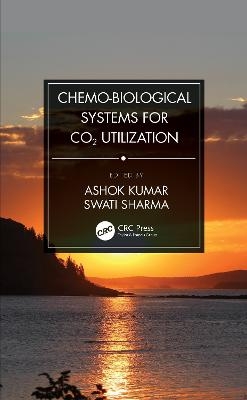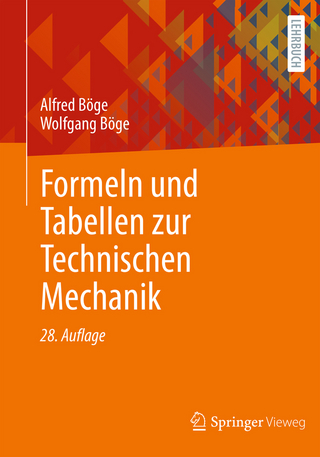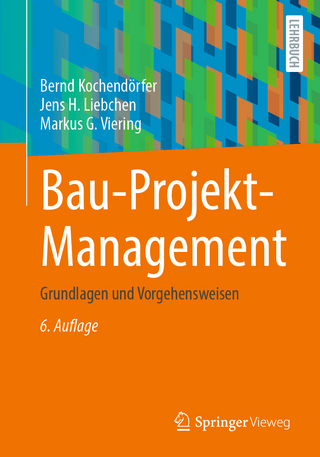
Chemo-Biological Systems for CO2 Utilization
CRC Press (Verlag)
978-0-367-32193-2 (ISBN)
- Titel z.Zt. nicht lieferbar
- Versandkostenfrei innerhalb Deutschlands
- Auch auf Rechnung
- Verfügbarkeit in der Filiale vor Ort prüfen
- Artikel merken
Chemo-Biological Systems for CO2 Utilization describes the most recent advanced tools and techniques for carbon dioxide capture and its utilization. It discusses and compares the advantages of different systems and aids researchers and industrialists in understanding energy generation in the form of biofuels, bioelectricity, or biogas using chemicals; nanomaterials; and microbial, enzymatic, and chemo-enzymatic-integrated systems. It describes the importance and utilization of CO2 in living systems, and provides an overview of the various fundamental methods, policies, and techniques involved in CO2 conversion. Emphasis is placed on the production of value-added products using CO2, including biomethanol, industrial carbonates, and liquid or gaseous fuels.
Features:
Explains the correlations between microbial, biological, and chemical products and their roles in the conversion of CO2 into usable energy and related products.
Being suitable for a broad audience, it addresses fundamental treatment methods for reusing environmental waste materials.
Aids in decision-making and policy planning for environmental professionals.
The information provided throughout this book will help researchers and professionals working in various industries to better understand the conversion of CO2 into energy-based products. Chemo-Biological Systems for CO2 Utilization also serves as a useful guide to seek alternative methods for clean energy and mitigating global climate change.
Dr. Ashok Kumar is working as an Assistant professor in the Department of Biotechnology and Bioinformatics, Jaypee University of Information Technology, Waknaghat, Solan, Himachal Pradesh, India. He has completed his Ph.D. in Biotechnology from Department of Biotechnology, Himachal Pradesh University, Summer Hill, Shimla, India in 2013. He worked as a post-doctoral fellow in State Key laboratory of Agricultural Microbiology, Huazhong Agricultural University, Wuhan China for two years. He also worked as Brain Pool researcher/Assistant professor at Konkuk University Seoul South Korea. Dr. Ashok has a keen interest in Carbon utilization, enzyme immobilization, biomaterials, biopolymers, nanobiotechnology, biocatalysis, waste management, biomass degradation, biofuel synthesis, and biotransformations. Dr. Ashok has published 55 research papers in various internationally reputed journals 4 books, and 21 book chapters. Dr. Swati Sharma is working as assistant Professor in University Institute of Biotechnology, Chandigarh University, Mohali, Punjab India. Dr Sharma has completed her PhD. from University Malaysia Pahang, Malaysia. She worked as a visiting researcher in the college of life and environmental sciences at Konkuk University, Seoul South Korea. Dr. Sharma has completed her masters (M.Sc.) from Dr. Yashwant Singh Parmar University of Horticulture and Forestry, Nauni Solan H.P. India. She has also worked as program co-coordinator at Himalayan action research center Dehradoon and Senior research fellow at India agricultural research institute. Dr. Sharma has published her research papers in reputed international journals. Presently, Dr. Sharma's research is in the field of bioplastics, hydrogels, keratin nano-fibers and nanoparticles, biodegradable polymers and polymers with antioxidant and anti-cancerous activities and sponges. Dr. Swati has published 22 research papers in various internationally reputed journals 4 books, and a couple of book chapters.
Chapter 1 Recent Developments in CO2-Capture and Conversion Technologies Chapter 2 Heterogeneous Catalytic Hydrogenation of CO2 to Basic Chemicals and Fuels Chapter 3 Recent Advances in CO2 Bi-Reforming of Methane for Hydrogen and Syngas Productions Chapter 4 Carbonic Anhydrase: An Ancient Metalloenzyme for Solving the Modern Increase in the Atmospheric CO2 Caused by the Anthropogenic Activities Chapter 5 Engineering of Microbial Carbonic Anhydrase for Enhanced Carbon Sequestration Chapter 6 Electrochemical CO2 Reduction Reaction on Nitrogen-Doped Carbon Catalysts Chapter 7 Role of Nanotechnology in Conversion of CO2 into Industrial Products Chapter 8 Application of Nanomaterials in CO2 Sequestration Chapter 9 Porous Materials for CO2 Fixation: Activated Carbon, MOFs, Nanomaterials Chapter 10 Novel Composite Materials for CO2 Fixation Chapter 11 Microalgae-Based Biorefinery for Utilization of Carbon Dioxide for Production of Valuable Bioproducts Chapter 12 Mechanisms for Carbon Assimilation and Utilization in Microalgae and Their Metabolites for Value-Added Products Chapter 13 Soil Microbial Dynamics in Carbon Farming of Agro-Ecosystems: In the Era of Climate Change
| Erscheinungsdatum | 22.09.2020 |
|---|---|
| Zusatzinfo | 25 Tables, black and white; 30 Illustrations, color; 7 Illustrations, black and white |
| Verlagsort | London |
| Sprache | englisch |
| Maße | 156 x 234 mm |
| Gewicht | 750 g |
| Themenwelt | Technik ► Bauwesen |
| ISBN-10 | 0-367-32193-9 / 0367321939 |
| ISBN-13 | 978-0-367-32193-2 / 9780367321932 |
| Zustand | Neuware |
| Informationen gemäß Produktsicherheitsverordnung (GPSR) | |
| Haben Sie eine Frage zum Produkt? |
aus dem Bereich


